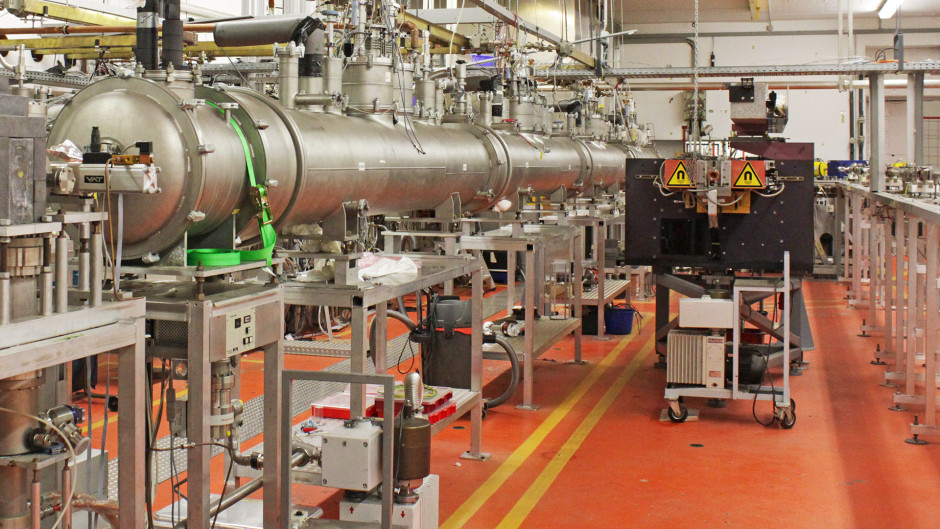Nuclear physics centre for the next generation of scientists
Energy-efficient particle accelerator: From 2016, the German Research Foundation (DFG) will be supporting a new research training group in nuclear physics at TU Darmstadt. Its collaboration partner is the Johannes Gutenberg University of Mainz. The research project runs until the end of 2020 and has a budget of 4.7 million Euros.
Superconducting, recirculating electron linear accelerator “S-DALINAC” at TU Darmstadt. Picture: Paul Glogowski
A class of particle accelerators that is new to physics and into which there has so far been little research enables much of the energy used to accelerate the particle beam to be recovered. This involves slowing the accelerated beam in the superconducting electromagnetic accelerator resonators back down to low injection energies.
Particle accelerators that work in this way are known as energy recovery linacs (ERLs). The new “Accelerator Science and Technology for Energy Recovery Linacs” research training group will conduct research into sources, control systems and the beam dynamics of such ERLs.
As the spokesman for the research training group Professor Dr. Norbert Pietralla explains, the starting point for this is “extraordinarily favourable”, because particle accelerators of this new type are currently being developed at both TU Darmstadt and the University of Mainz.
At TU Darmstadt, the superconducting, recirculating electron linear accelerator “S-DALINAC” is currently being converted into the first accelerator in Germany that can be operated as an ERL. In Mainz, one of the first high-current ERLs with the acronym “MESA” to be operated at a German university is under construction as part of the “PRISMA” Cluster of Excellence.
The group's research and training concept will take advantage of this special situation to bring together the next generation of scientists from the fields of accelerator physics and electrical engineering in order to conduct research in interrelated doctoral projects dealing with the physics and technology of ERLs. This is also why four professors are involved from the Department of Electrical Engineering and Information Technology at TU Darmstadt.
*****
Spokesman for the research training group
Spokesman: Prof. Dr. Norbert Pietralla (TU Darmstadt, Institute of Nuclear Physics)
Co-spokesman: Prof. Dr. Kurt Aulenbacher (JGU Mainz, nuclear physics) and Prof. Dr.-Ing. Thomas Weiland (TU Darmstadt, electromagnetic fields theory)
feu

